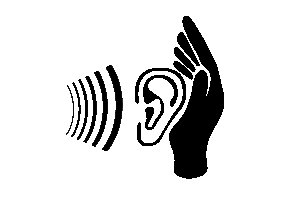Depression therapists play a vital role in helping individuals overcome mental health challenges, offering safe spaces for exploration, coping strategy development, and understanding root causes. They employ evidence-based approaches like CBT, IPT, and MBCT to target negative thought patterns, interpersonal issues, and prevent recurrent depression. Building trust with therapists is key, fostering open communication and tailored treatment plans. Combining therapy with self-care practices improves outcomes, emphasizing the importance of physical well-being alongside emotional healing. Choosing a qualified therapist using evidence-based methods ensures a successful journey towards managing and overcoming depression.
Depression is a prevalent mental health condition affecting millions, yet understanding it and seeking help can be challenging. This article guides you through the therapeutic journey towards managing depression effectively. We explore various therapy types, with a focus on Cognitive Behavioral Therapy (CBT), and discuss evidence-based options. Learn how talking to a therapist offers immense benefits, and discover tips for building a supportive relationship with your depression therapist. Additionally, we provide insights into creating personalized treatment plans and the importance of self-care in recovery.
Understanding Depression and the Role of Therapists

Depression is a complex mental health disorder that significantly impacts an individual’s daily life and overall well-being. It goes beyond feeling sad or upset for a brief period; instead, it involves persistent feelings of hopelessness, loss of interest in activities once enjoyed, changes in appetite and sleep patterns, fatigue, and difficulty concentrating. These symptoms can vary in intensity and duration but consistently affect how one perceives themselves and the world around them.
Depression therapists play a pivotal role in helping individuals navigate through these challenging emotions and experiences. They provide a safe, non-judgmental space for clients to explore their thoughts and feelings, identify triggers, and develop coping strategies. Through various therapeutic approaches, such as cognitive behavioral therapy (CBT), interpersonal therapy, or psychodynamic therapy, depression therapists guide patients towards understanding the underlying causes of their depression and equip them with tools to manage symptoms effectively. The collaborative relationship between therapist and client is essential in fostering healing and restoration.
Types of Therapeutic Approaches for Depression

When seeking help for depression, individuals have a variety of therapeutic approaches at their disposal. One common and effective method is cognitive-behavioral therapy (CBT), which focuses on identifying and changing negative thought patterns and behaviors that contribute to depressive symptoms. CBT helps patients develop coping strategies, improve their mood, and regain control over their lives.
Another popular approach is interpersonal therapy (IPT), designed to address relationship problems or social isolation, both of which can be significant triggers for depression. IPT aims to enhance communication skills, resolve conflicts, and build a supportive network, thereby reducing symptoms and improving overall well-being. Additionally, some depression therapists employ mindfulness-based cognitive therapy (MBCT), combining elements of CBT with mindfulness practices to prevent depressive episodes from recurring.
Cognitive Behavioral Therapy (CBT): A Popular Choice

Cognitive Behavioral Therapy (CBT) is a popular and effective choice among depression therapists. It focuses on identifying and changing negative thought patterns and behaviors that contribute to depressive symptoms. By challenging distorted thinking and learning new coping strategies, CBT helps individuals manage their depression and improve their overall well-being.
This therapy is structured and goal-oriented, working with clients to set realistic objectives and providing tools to monitor progress. It’s a collaborative process where the therapist guides the individual through self-reflection and homework assignments, fostering a deeper understanding of one’s thoughts, feelings, and behaviors. CBT has been extensively researched and proven successful in treating various forms of depression, making it a go-to option for many depression therapists.
Other Evidence-Based Therapy Options

When exploring therapeutic treatment for depression, individuals often turn to psychotherapy as a primary option. However, there are several other evidence-based therapy approaches that have proven effective. Cognitive Behavioral Therapy (CBT) is a well-researched method that focuses on identifying and changing negative thought patterns and behaviors contributing to depression. This approach empowers individuals to challenge distorted thinking and adopt healthier coping strategies.
Additionally, Interpersonal Therapy (IPT) is another evidence-based practice designed to help clients navigate and resolve interpersonal issues that may be exacerbating their symptoms. By addressing relationship challenges, improving communication skills, and fostering a sense of social support, IPT can significantly alleviate depressive episodes. These therapy options, alongside others like Mindfulness-Based Cognitive Therapy (MBCT), offer diverse approaches for depression therapists to provide effective care tailored to each client’s unique needs.
The Benefits of Talking to a Therapist

Talking to a depression therapists offers numerous benefits that can significantly enhance one’s well-being. Through open and safe conversations, individuals can explore the underlying causes of their depression, gain insights into their thoughts and behaviors, and develop healthier coping mechanisms. Therapists provide a non-judgmental space, fostering trust and encouraging self-reflection, which are crucial for healing.
Regular sessions with a depression therapists enable individuals to build resilience, improve emotional regulation, and rediscover meaningful activities in their lives. With guidance from a trained professional, clients can navigate complex emotions, challenge negative thought patterns, and learn effective strategies for managing symptoms of depression. This supportive process empowers individuals to take control of their mental health and cultivate a brighter outlook.
Building Trust and Rapport with Your Therapist

Building trust and rapport with your therapist is a crucial step in effectively managing depression. This process involves creating a safe, non-judgmental space where you feel comfortable sharing your thoughts and feelings. Depression therapists play a vital role in helping individuals navigate their emotions and experiences by fostering an environment of acceptance and understanding. Through open communication, active listening, and empathy, therapists gain insights into their clients’ unique struggles, enabling them to tailor treatments accordingly.
Rapport-building also enhances the therapeutic alliance, ensuring that both parties are aligned in the healing process. Depression therapists who establish strong connections with their clients are better equipped to provide personalized support, guidance, and strategies for coping. This collaborative approach not only improves treatment outcomes but also makes the journey towards recovery more bearable and meaningful.
Creating a Personalized Treatment Plan

When seeking help for depression, one of the most effective strategies is to work with a depression therapist who can design a personalized treatment plan tailored to your unique needs. This involves an in-depth assessment of your symptoms, medical history, and personal goals. A skilled therapist will explore various therapeutic modalities, such as cognitive-behavioral therapy (CBT), interpersonal therapy, or mindfulness-based approaches, to create a comprehensive strategy that addresses the root causes of depression.
The personalized treatment plan ensures that you receive targeted interventions designed to manage symptoms effectively. This may include regular therapy sessions, homework assignments between sessions, and potentially medication management. By collaborating closely with your therapist, you can navigate the journey towards recovery at your own pace, making adjustments as needed to ensure the best possible outcome.
Integrating Self-Care Practices with Professional Help

For many individuals dealing with depression, combining professional therapy with self-care practices can significantly enhance treatment outcomes. Depression therapists often emphasize the importance of self-compassion and personal well-being as integral components of recovery. This might include encouraging patients to engage in regular exercise, maintain a balanced diet, and prioritize quality sleep—all of which have been scientifically linked to improved mood and mental health.
Integrating these self-care strategies with evidence-based therapeutic interventions, such as cognitive behavioral therapy (CBT) or interpersonal therapy, offers a comprehensive approach. By tending to one’s physical and emotional needs, individuals can create a stable foundation for working through difficult emotions and challenging thought patterns with the guidance of a depression therapist. This holistic method empowers people to take an active role in their mental health journey while receiving professional support.
Finding the Right Depression Therapist for You

Finding the right depression therapist is a crucial step in your journey towards healing. It’s essential to consider your unique needs and preferences when selecting someone who will guide you through therapy. Not all therapists are created equal, and different approaches work for various individuals. Some focus on cognitive-behavioral therapy (CBT), others on mindfulness or interpersonal techniques.
When looking for a depression therapist, seek professionals with expertise in treating depressive disorders. Check their qualifications, experience, and training in evidence-based therapies. Personal connections and recommendations from trusted sources can also help you find the best fit. Remember, building trust and feeling comfortable opening up to your therapist is vital for successful therapy.
